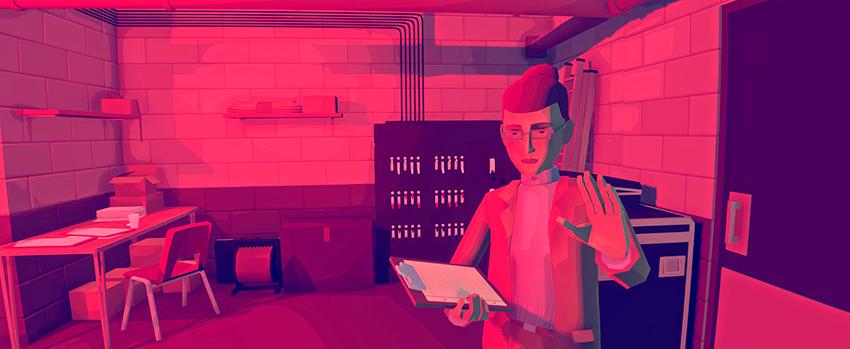Virginia Review: defining the line between movies and video games
★★★☆☆ | $10 | Steam, PS4, XBOX ONE
November 2, 2016
Imagine going into a movie theater and becoming the main character. Living the story through their eyes, feeling the mixed cauldrons of emotion as they do, never knowing the full story. It’s an interesting concept, and one that describes Virginia – not full game, but not full movie, either. A mix of both, testing the bounds between cinema and gaming.
Virginia’s story is a mysterious, sometimes incomprehensible tale that intrigues you from the beginning, and keeps that interest throughout its two-hour playtime. In the game, you play as a recently graduated FBI agent, Anne, who is assigned a new partner and an investigation of a disappearance of a young boy in the small town of Kingdom, VA. But at the same time, she has been assigned another case to juggle: investigating her new partner.
Anne is an unreliable narrator – linear story is blurred and out of order – time jumps forwards, backwards, side-to-side through dreams, drug trips, and the occasional guess at what actually is reality. Scenes jump suddenly and quickly, only giving you as much context as you need to piece a spotty timeline together.
Gameplay is simple, you search for select items or the right door to walk through to progress the story. Virginia’s 3D, polygon-styled art really made this tolerable, with its dusty colors and eye-level shot style that made it feel like walking through an actual television show or movie. It’s a walking point-and-click simulator, which may be an immediate turn-off for some gamers, but for those who enjoy less action and more self-interpreted story, you may find yourself enjoying this style of gameplay.
Virginia is filled with style references to popular cult television – “Twin Peaks”, “The X-Files”, “Stranger Things”, with the gritty modern aesthetics of “True Detective” make it one that strikes a nostalgic chord. The story is entirely based on your interpretation of what you think is going on – there is no dialogue and nothing to read other than a few case files and signs. It’s up to you to read body language, use items and files you find to piece together the multiple mysteries hidden within the game.
I’ve never had a gaming experience quite like the one I had while playing Virginia. It rattled my whole infrastructure on what gaming is; morphed it into a broader aspect of what art in video games could be developing into. You never get answers. You never fully understand what’s going on at any current moment. It’s a cinematic masterpiece, every scene stunning, but you have no control over what happens in the story. You have no idea who you and everyone else becomes as it progresses. As I play, it feels like I’m constantly missing something huge right in front of my face, and because of that, I’m going to be replaying it again and again.




















